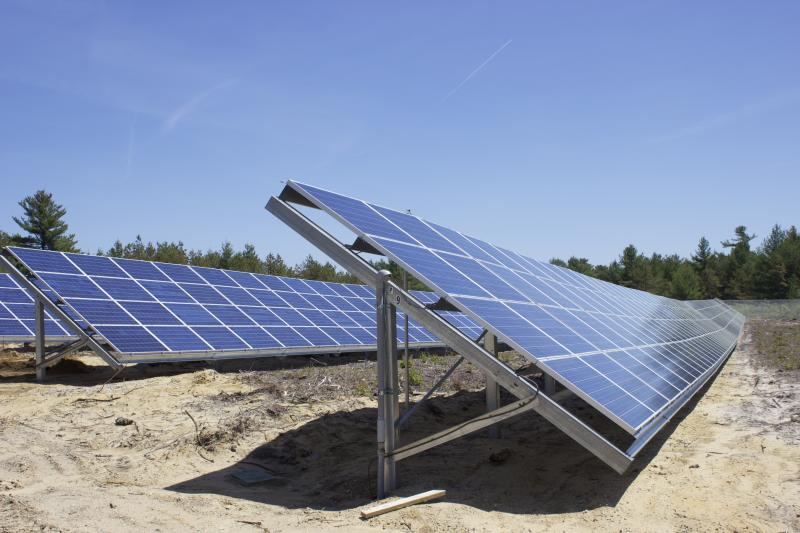One solar bylaw struck by Attorney General; two more up for votes at Town Meeting
Attorney General Maura Healey has slapped down a solar bylaw approved at last year’s Spring Town Meeting that, in her words, violates the state’s “prohibition against unreasonable regulations of solar uses.”
Two other proposed solar bylaws will be up for a vote at the next Town Meeting.
Healey’s letter, published on Monday, March 21, details how the bylaw — which wasn’t yet in effect — amounts to essentially a ban on new solar projects.
“These burdensome results of the proposed by-law amendment are in effect little different than an absolute prohibition on solar installations,” the letter reads.
Wareham residents voted at the June 12, 2021 Town Meeting in favor of a solar bylaw spearheaded by Nancy McHale of the Wareham Land Trust, which included several restrictions on new solar project construction. The proposed bylaw would have required solar facilities to be located on land parcels between 3 and 10 acres that have been cleared of trees for at least five years. McHale explained at the time that the bylaw was prompted by an influx of proposed solar fields across Wareham. The bylaw was intended to be a stop-gap measure that would slow the flood of projects and give the town time to craft a better, more comprehensive solar bylaw.
After the citizen’s petition proposing the new bylaw was announced last year, a rush of solar companies hurried to make sure their projects could continue by filing plans for land subdivisions which “freeze” the zoning regulations that apply to their parcels.
In the months since, the Select Board has created a Solar Bylaw Review Committee to update the town’s existing solar bylaws. A new citizen’s petition asks voters to approve a temporary moratorium on large solar installations during the Spring Town Meeting this year on April 25. During the Special Town Meeting, which will be held at the same time, voters will discuss another bylaw that would regulate new solar developments.
For the attorney general’s office, last year’s proposed bylaw would unduly restrict solar projects.
“In addition, as one opponent has noted,” the letter reads, “the requirement that a solar developer wait five years after clearing the solar array footprint before the developer may even submit a site plan review or special permit application is an unreasonable economic burden on solar uses.
“Because Article 17 violates G.L c. 40A, § 3’s prohibition against unreasonable regulation of solar uses, we disapprove and delete it.”
The Attorney General’s decision means that the town’s current solar bylaws will remain unchanged — at least for now.
McHale, who authored the bylaw and heads the town’s Solar Bylaw Committee, said the timing of the decision’s release was “disturbing.”
“This shouldn't have taken months for the Town to deliver the required documents to the AG's office and then several more months for AG's office to rule,” McHale said. “Not having this guidance for our committee's consideration meant that we were not able to benefit from this relevant information in crafting our new by-law. It may or may not have had an impact on our final document but there is no way of assessing the impact of the delay.”
She said she strongly encourages Wareham voters to attend Town Meeting and make their voices heard.
The Solar By-Law Study Committee’s proposed bylaw would replace the town’s current solar regulations. The bylaw provides standards for the location, design, construction and monitoring of new large-scale ground-mounted solar arrays.
The introduction to the bylaw explains that it “aims to balance the rights of landowners to use their land to develop solar energy systems while protecting the health, safety and welfare of the public and to preserve the natural environment that makes Wareham unique.” The law strongly encourages solar projects on rooftops or in existing industrial areas while discouraging projects in forests and other natural resource areas.
The citizens’ petition to be voted on this spring would institute a moratorium on large-scale ground-mounted solar systems until June 30, 2023, or the 2023 Spring Town Meeting, whichever comes first. Lead petitioner Annie Hayes explained that the article is designed to give the town time to study the future of solar in town.
Both proposed bylaws will be discussed in detail at the Planning Board’s March 28 meeting.
A digital copy of Healey’s letter is attached to this story in the link above.












